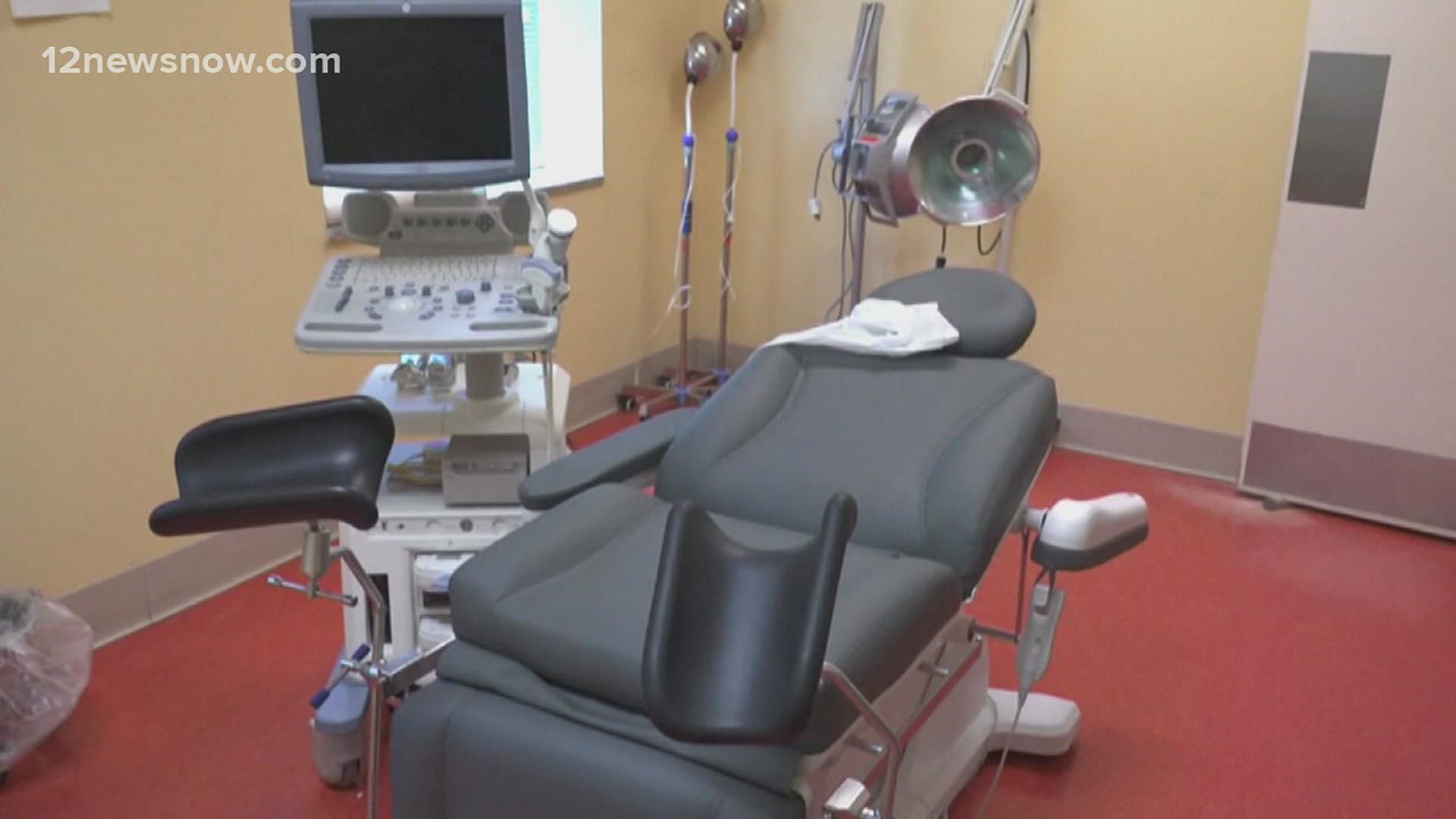BEAUMONT, Texas — After the U.S. Supreme Court overturned Roe v. Wade, Texas Attorney General Ken Paxton issued a statement saying that abortion providers could be criminally liable for providing abortions, effective immediately.
Because of this, clinics are closing to protect staff from getting into legal trouble and Texas doctors are worrying how this will impact the sacred space between a patient and a physician.
MORE: Southeast Texans, organizations speak out after Supreme Court's decision to overturn Roe v. Wade
“We need to all keep in mind we are putting our patients first and not creating issues that allow for that patient-physician relationship or even any clinician relationship to be not destroyed,” said Kimberly Pilkington with the Texas Association of Obstetricians and Gynecologists.
Pilkington says the association doesn’t take a stance on abortion, but she emphasizes that abortion is more than just a termination of pregnancy.
In some cases doctors are left with no choice but to turn to it.
“All of us have been in the unfortunate circumstance of taking care of high-risk pregnancies and situations. Women actually wanted to carry the pregnancy, but it was medically incapable of doing so and we had to, you know, augment or help along the process,” Pilkington said.
President of the Texas Medical Association Gary Floyd says the organization will be working with lawmakers to ensure a safe environment for both patients and physicians.
“We certainly don't want to see any criminalization when physicians practice evidence-based appropriate medical care, so that's kind of where we are with this,” Floyd said.
As patients and physicians navigate these new waters, doctors say adjustments are inevitable.
Pilkington emphasizes contraception is still an option for women.
“The good news is most contraception is not abortion-causing, it's not related to abortion. So for instance, birth control pills, the primary way that they work is to prevent ovulation,” Pilkington said.
Doctors want to ensure patients feel comfortable being in their care.
“None of us want to break any laws, but we want to take care of our patients and not delay care, because we feel like our hands are tied,” Pilkington said.
Pilkington also says she hopes politicians are talking with different medical doctors and organizations as these decisions are being made because protecting the care of women and their families should always be the top priority.

